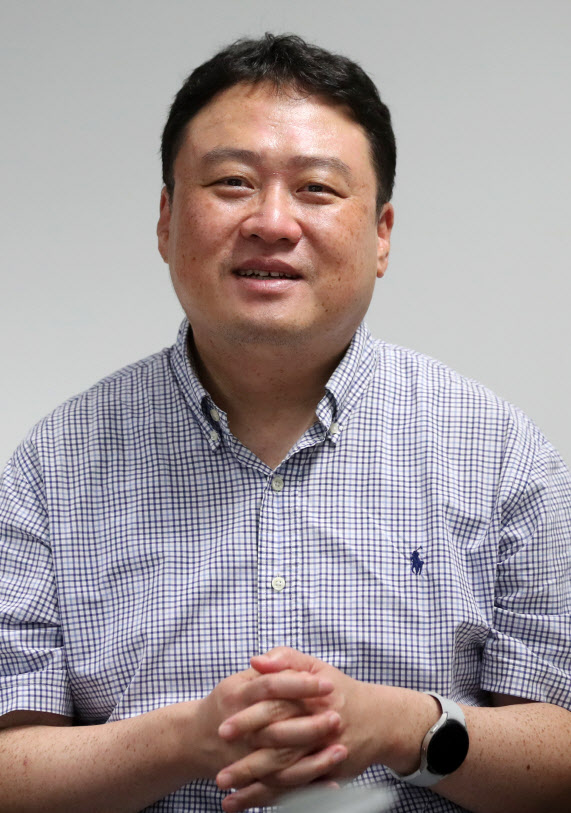Professor Jaesik Choi, operating AI prediction service company 'Iniji' since 2019, applying 'Explainable AI' to industry... 'AI-based prediction and explanation' are key engines, providing AI services in 26 processes including cement, chemicals, and steel, diversifying demand such as raw material price prediction
In order to make cement, limestone, iron ore, etc. must be heated at high temperatures in a large rotary kiln called a 'kiln' to turn them into gray lumps. At this time, 'temperature' is very important. If the temperature seems to be dropping, more fuel should be added, and if the opposite is true, fuel supply should be reduced. You need to predict whether the temperature will rise or fall and act accordingly, but unless you are a veteran with 20 to 30 years of experience, you cannot touch it directly and will be in a difficult situation. What if artificial intelligence (AI) could predict whether the temperature will rise or fall in advance based on data such as the kiln temperature and fuel consumption?
Jaesik Choi, a professor at KAIST's Kim Jae-chul AI Graduate School, founded 'INEEJI' in 2019 to prove explainable AI. It provides services such as process optimization, prediction, and diagnosis through AI prediction services. INEEJI's AI prediction service is currently being used in 26 processes including cement kilns, chemicals, steel, transportation, and energy.
In a recent interview with Edaily, Professor Choi said, “Ingenie automatically controls equipment through predictions,” and “AI controls and moves equipment the size of a house in cement and steel factories. Since it is large equipment, even the slightest mistake can affect the amount produced per second and the unit price, so it needs to be much more explainable and controllable.”

INEEJI has been used in heavy and heavy industrial processes, but recently, the demand from companies that want to utilize AI prediction services has become more diverse. Professor Choi said, “Companies are reducing energy costs such as fuel by 1-7% and maintaining consistent quality control using AI prediction services, so there is additional demand,” and “They buy and sell raw materials every year, and they want to buy when the price of raw materials is the lowest and sell when the price of products is the highest. There is also a demand to predict the price of raw materials.” He added, “When looking at the macro economy, some people analyze it with data, but others do it with intuition,” and “AI plays a role in presenting a single opinion.”
Professor Choi said, “Game companies also want to predict when game users will make payments,” and “Companies want to create learning AI models using their own data.” He continued, “INEEJI’s core engine is AI-based prediction and explanation. It predicts what will happen in the future, whether customers will purchase or not, whether the temperature will rise or fall, and explains why and responds.”
AI can also make mistakes. For example, if you predict that Japan will have more demand than China, but that prediction is wrong, you have to correct it, listen to the opinions of experts, and go through the process of correcting it again several times. If AI can know where it is wrong and correct it, people will trust and use it, but if it is not, people will not trust the AI even if it is right 9 out of 10 times and is wrong once, Professor Choi explains.
INEEJI has been selected for the 'Emerging AI+X Top 100' for two consecutive years as an innovative company that combines the latest AI technology with various industries (X). This year, it attracted $8.25 M in Series A investment. It currently has 100 employees. It is also expanding its sales channels to Japan and other countries.
Professor Choi stated that he wants to become a company that everyone in the world knows, even if it is not a large company. He said, "Our country's shipbuilding, semiconductors, and automobiles started from the bottom and rose to a world-class level, and I want the software industry to do the same." He added, "World-class talents are coming into Korea and our country is going global, so there are Korean branches all over the world, but I wish the headquarters were in Korea." He added, "My goal is for people to recognize INEEJI while driving on the Gyeongbu Expressway and say, 'There's INEEJI.'" He said, "Universities have become global. If you can't write an international paper, you can't get promoted. It's the same for large companies. I wish startups could do the same," and emphasized, "We need to focus more on global values."







